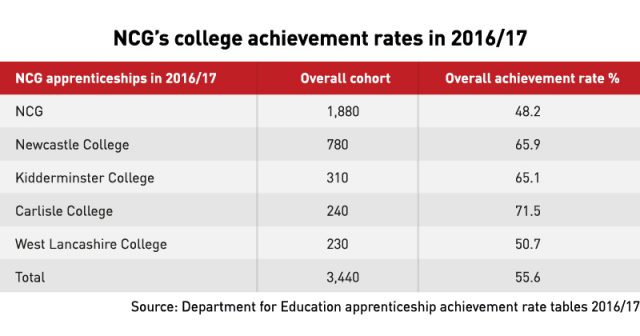The group developing three long-delayed FE teaching standards is in a bitter stand-off with the Institute for Apprenticeships, claiming the funding bands on offer represent just half what these standards would cost to deliver.
The three standards, ranging between levels three and level five, have been in development since 2015. They were recently assigned funding bands of £5,000 to £9,000.
But the education and training trailblazer leadership group has rejected the IfA’s offers – insisting they are between 50 and 57 per cent lower than lowest estimate submitted.
Ian Grayling, the director of CETTacademy who vice-chairs the trailblazer group, told FE Week the situation is “extremely frustrating”.
“Any decision on a funding band needs to be based on evidence and on a formal, transparent process by which it’s arrived at,” he said.
“I don’t believe there is any quantitative process of scoring or metrics being applied here.”
The group has lodged an appeal with the IfA, but Mr Grayling admitted they weren’t confident it would succeed – not least because they were only allowed to appeal the process, not the funding band, “and there is no procedure we can appeal”.
For its part, the IfA has insisted the way it assigns funding bands to standards is “fair”.
A spokesperson for the body did not say why it had appeared to ignore the trailblazer group costings, or why they won’t share details of their new indicative rate setting methodology.
She said “a range of factors” are considered when making funding band recommendations, including “information supplied by trailblazers and providers” and “advice from industry-led route panels”.
“We are satisfied that our process is fair, and that the recommendations we make are appropriate for each apprenticeship standard,” she added.
The level five learning and skills teacher standard was first published way back in August 2015, while the level four assessor/coach and level three learning mentor standards were published in October the same year.
Assessment plans for the level three and four standards were only published last month, while the plan for the level five standard has yet to appear.
According to correspondence shared with FE Week, the standards were allocated final funding bands on April 20.
They were set at £5,000 for the learning mentor, £6,000 for the assessor/coach and £9,000 for the learning and skills teacher.
But they were rejected by the trailblazer group on May 3, based on the “unanimous decision” of its members, which included colleges, universities, training providers and the Education and Training Foundation, along with feedback from the sector.
Mr Grayling told FE Week the group had submitted a range of employer-delivery costings for the three standards, based on estimates from different providers.
“They clearly do not feature in the funding band decision – because if they did how could they award a funding band at 50 per cent below the lowest cost?” he said.
The 24-month level five standard included a teaching qualification, which in itself would cost almost as much as the entire funding band, Mr Grayling said.
In contrast, the equivalent school teacher apprenticeship, at level six, was also given a £9,000 funding band – even though it doesn’t include a qualification, and is only 12 months long.
The IfA’s website lists a number of factors it considers when recommending funding bands, only one of which relates to information provided by employer groups.
However, four relate to comparisons with other apprenticeships, and wider affordability.
Mr Grayling questioned both the openness of this process, and how it was possible to make a comparison when – as in this case – the standards are wholly new.
“Who’s comparing it? How is it being compared? How can we be sure of the validity of that comparison? How can you compare something that doesn’t exist?” he asked.
FE Week reported in December that 13 standards with approved assessment plans had been left in limbo for months as their costs hadn’t been agreed.
Shortly after that the IfA revealed plans to make its processes “faster and better” in 2018, and in February announced changes to the process for allocating funding bands.
This would align it with proposal and assessment plan approvals, and give employer groups an indicative funding band much earlier in the process.





